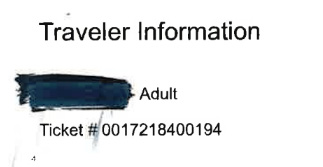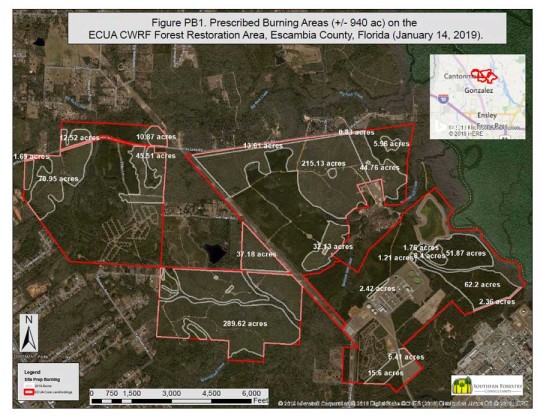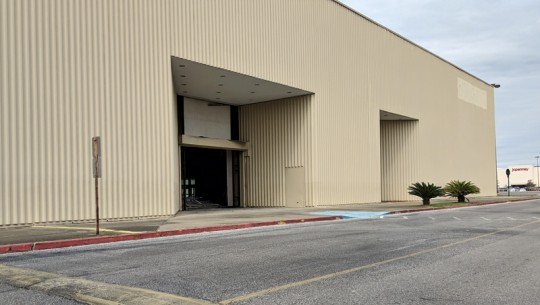Florida Senate Signs Off On Smokable Marijuana
March 8, 2019

Bowing to a demand by Gov. Ron DeSantis, the Florida Senate on Thursday overwhelmingly approved a measure that would allow patients to smoke medical marijuana if doctors deem it the proper treatment.
Under the proposal, patients could buy up to 2.5 ounces of medical pot during a 35-day period and would be able to possess up to 4 ounces of cannabis at any given time. Smoking of medical cannabis — which would have to be purchased from state-authorized operators — would be banned in public places. And patients under age 18 would be allowed to smoke the treatment only if they are terminally ill and have a second opinion from a board-certified pediatrician.
The Senate’s 34-4 vote in favor of the measure (SB 182) came two days after the start of the 2019 legislative session, and the House is expected to take up the measure Wednesday.
“We have been working around the clock, with our colleagues in the House and with the governor’s office, to come up with a consensus product. I think we have done that,” Sen. Jeff Brandes, the bill’s sponsor, said in an interview Thursday.
The quick legislative action comes in response to an ultimatum delivered by the Republican governor shortly after he took office in January. DeSantis gave the Legislature until March 15 to address the smoking ban. If they don’t act, DeSantis threatened to drop the state’s appeal of a court decision that found the prohibition violates a constitutional amendment that broadly legalized medical marijuana.
The smoking ban was included in a 2017 law aimed at carrying out the amendment, approved by more than 71 percent of voters in 2016.
Cathy Jordan, a plaintiff in the case, credits a daily regimen of smoking marijuana with keeping her alive decades after doctors predicted she would die from Lou Gehrig’s disease. Jordan, who grows her own pot and who is highly regarded by pot advocates nationwide, testified last year that smoking marijuana treats a variety of life-threatening side effects of the disease and that other forms of ingestion don’t have the same positive impact.
Brandes, a St. Petersburg Republican who has long advocated for medical marijuana, praised the soft-spoken Jordan’s tireless efforts to get the Legislature to sign off on smokable medical cannabis.
“Every year, she comes up and she would visit us,” Brandes said. “Cathy Jordan was a champion.”
Several Republican lawmakers, however, bristled at the idea of legalizing smokable pot, which Sen. Kelli Stargel of Lakeland called a dangerous “gateway drug.”
The proposal requires the state university system’s Board of Governors to designate a university to house a “Consortium for Medical Marijuana Clinical Outcomes Research” and would steer $1.5 million each year to fund the research, which would be based on data submitted by doctors.
But Sen. Keith Perry, R-Gainesville, said that doing away with the ban defies common sense because of the well-known negative health effects of smoking.
“I guess we could take any medication and now say why don’t we smoke any medication? There’s lots of medications out there, and I think we ought to open it up to that, unless we think there’s something wrong with that,” he said. “The research needs to be done before we implement it, not afterwards.”
But Sen. Rob Bradley, a Fleming Island Republican who has been instrumental in passage of the state’s medical marijuana laws, argued the legislation erects “reasonable guiderails” that would be lacking if the governor drops the court appeal.
“It’s time to move this discussion from Tallahassee to doctors’ offices around the state of Florida,” he said.
But Bradley, a former prosecutor, also challenged doctors to take the issue seriously.
“This is a medicine. Treat it as such,” he said. “Make sure when you make your decisions with your patients that you do so in their health, in their best interest, and not turn this into some kind of joke.”
The newly inaugurated DeSantis appeared at a news conference Jan. 17 with Orlando lawyer John Morgan, who largely bankrolled the 2016 constitutional amendment, to deliver an unambiguous ultimatum about eliminating the smoking ban, saying the “sword of Damocles” was hanging over the head of legislative leaders.
“We have to comply with the Constitution. I am not going to fight these lawsuits when we are on the losing side of them. So if they continue to do a bill that’s constitutional, then we will move on,” DeSantis, a Harvard Law School graduate, told reporters Tuesday.
Senate President Bill Galvano, however, is among those who believe the ban does not violate the constitutional amendment, which does not specifically state that smoking of medical marijuana is allowed.
“I think we were right when we interpreted the amendment the way it was interpreted … but the world we find ourselves in is where the courts disagreed with us. That’s how it works, and we have respect for the courts and respect for the Constitution that we’ve sworn to uphold. So we’ve done what I think is taking some reasonable steps in meeting the requirements of both,” the Bradenton Republican told reporters after Thursday’s floor session.
If the House approves the bill and DeSantis signs it into law as expected, it’s unclear how long it will take for smokable pot to become available to patients.
State health officials would still have to craft rules regulating smokable marijuana. And DeSantis has yet to appoint a Department of Health secretary, who also serves as the state’s surgeon general.
The state’s largest medical marijuana operator, Trulieve, is prepared to offer whole-plant products to patients “as soon as all rules and approvals are in place,” the company said in a news release following passage of the bill.
“Though we do not have an exact date for when these rules will be in place, we understand patients’ urgency in getting immediate access to this form of medicine and are working to be as prepared as possible for when approvals are granted,” the Quincy-based company said in a statement.
by Dara Kam, The News Service of Florida
USGS Increases Magnitude of Jay Earthquake To 2.7, Moves Epicenter Closer To Century
March 7, 2019
Story updated to reflect new information from the USGS with increased magnitude, location closer to Century.
A magnitude 2.7 earthquake was reported last night just outside Jay.
According to the United States Geological Survey, the earthquake was centered 2.6 miles west-southwest of Jay at 10:45 p.m.. The epicenter was near the intersection of Nelsontown Road and Shell Road
At a magnitude 2.7, light shaking can be felt, but damage typically does not occur, according to the USGS..
Multiple NorthEscambia.com readers reported feeling the shake. Many reported their entire house shaking and items rattling.
Century Finally Produces Some Airline Ticket Info, But Won’t Say Who Traveled
March 7, 2019
Century Mayor Henry Hawkins still isn’t providing details about who the town purchased airline tickets for last October, but the town has produced a portion of the records requested nearly two months ago by NorthEscambia.com.
In December, the town council approved payment of $1,751 to Expedia and three airlines on a bill list. As part of a public records request on January 8, NorthEscambia.com asked for the “airline invoices or receipts that have been discussed and appeared on the bill list at recent meetings, along with reservation information for such”.
That request was ignored by the town until this week. As we reported Tuesday, Hawkins told us and council president Ann Brooks that he would provide the receipts, but he would “black them out”. He refused to answer questions about the legal justification for the proposed redactions.
Tuesday afternoon, a town staffer emailed documents to NorthEscambia.com and Brooks.
 On each page from Expedia, the name of the traveler was redacted, marked out by hand. No justification for the redactions was provided.
On each page from Expedia, the name of the traveler was redacted, marked out by hand. No justification for the redactions was provided.
No explanation was given as to why it took nearly two months to produce the documents. Florida’s Sunshine Law dictates that records must be produced in a reasonable time, and the only delay permitted “is the limited reasonable time allowed the custodian to retrieve the record and delete those portions of the record the custodian asserts are exempt.”
The documents included two itineraries and one sheet labeled as a receipt. The “receipt” from Expedia did not indicate the purchaser, but it did show the last four digits of a Visa card used for payment.
Tuesday, the town provided:
- An Expedia itinerary showing a cost of $560.92 for an American Airlines flight departing October 28 from Los Angeles to Pensacola, and a room with double beds for one adult for two nights at the LaQuinta Inn on Davis Highway in Pensacola. The traveler’s name is redacted.
- An Expedia itinerary showing a cost of $689.38 for a Delta flight departing October 29 from Los Angeles to Pensacola, a return flight on Frontier Airlines on October 31, and a room with double beds for one adult for one night at the LaQuinta Inn on Davis Highway in Pensacola. The traveler’s name is redacted.
- An Expedia receipt for $501.40 for a one-way flight from Pensacola to Eugene, Oregon, on October 31. The receipt does not specify the airline, and the traveler’s name is redacted.
The items provided this week by the town total $1,751.70.
The December town bill list showed payments were made for charges incurred in October as follows:
- American Airlines $501.40
- Delta $366.90
- Expedia $668.50
- Frontier Airlines $214.90
The items total $1,751.70, equal to the itineraries and receipt provided but the payee entries listed differ.
Under the town’s charter, Hawkins is required to seek advance council approval for purchases in excess of $200. The council did not approve the airline ticket purchases.
He has contended that Escambia County Commissioner Steven Barry promised to reimburse the costs with county economic development, but Barry has denied even communicating with Hawkins about travel expenses. During a public council meeting, Hawkins called Barry “a lie”. “
Tate Students Prepare 50,000 Meals For The Needy
March 7, 2019
The Tate High School FFA worked this week to prepare 50,000 meals for a Meals of Hope project to help fight hunger.
This was the third year for the chapter and its FFA members to raise money for this community service event. The first year, the program started with 12,000 meals and doubled to 25,000 meals last year. Each meal package consisted of a protein, dry macaroni noodles and cheese package. All the packaged meals were sent to Feeding the Gulf Coast where they will distributed to families in Escambia and Santa Rosa counties.
“Nearly 300 students gathered in the Tate gymnasium for a day packed full of working, dancing, singing and a pizza party to make this an awesome day,” said Tate FFA sponsor Melissa Gibbs. Tate agriculture students were joined by Tate students from FBLA, student council, softball and baseball, along with future Aggies from Brown Barge and Ransom middle schools. Tate FFA Alumni, community partners and FFA parents also assisted with the event.
“This has definitely become a Tate FFA tradition. Our FFA members and students look forward to being a part of this event every year. I promise, the efforts put into this event truly have an impact our communities as students work together to address food insecurities within our local areas,” Gibbs said.
She said the program exemplifies the FFA Motto “Learning to Do, Doing to Learn, Earning to Live, Living to Serve”. The project is a component in the Tate FFA quality chapter plan and National chapter award.
For a photo gallery, click here.
Photos for NorthEscambia.com, click to enlarge.
Year Round Daylight Saving Could Become Law
March 7, 2019

Florida residents will join most of the nation in setting clocks forward and returning to daylight saving time this weekend.
But why did we “fall back” last year?
During their 2018 session, the Florida Legislature passed a bill to keep daylight saving time year round that was signed into law by then-governor Rick Scott. But the change ultimately required Congressional approval, which did not happen.
Wednesday, now Senator Rick Scott, Senator Marco Rubio and Rep. Vern Buchana introduced the Sunshine Protection Act which would make daylight saving time permanent across the entire country.
The legislation, if enacted, would apply to those states who currently participate in DST, which most states observe for eight months out of the year. Standard Time, from November to March, is only observed for four months out of the year. The bill would simply negate the need for Americans to change their clocks twice a year. Many studies have shown that making DST permanent could benefit the economy and the country
“Studies have shown many benefits of a year-round Daylight Saving Time, which is why Florida’s legislature overwhelmingly voted to make it permanent last year,” Rubio said. “Reflecting the will of the State of Florida, I’m proud to reintroduce this bill to also make Daylight Saving Time permanent nationally.”
“I was glad to sign legislation as Governor to continue Daylight Saving Time year-round for Floridians, and now join Senator Rubio to lead this effort in Congress,” Scott said. “The Sunshine Protection Act will allow Floridians and visitors to enjoy our beautiful state even later in the day, and will benefit Florida’s tourism industry, which just celebrated another record year.”
Labor Dept. Investigation Nets Back Wages To 111 Cricket Wireless Employees
March 7, 2019
After an investigation by the U.S. Department of Labor’s Wage and Hour Division (WHD), Fast Frontier LLC – based in St. Petersburg, Florida, and operating as Cricket Wireless – has paid $41,677 in back wages to 111 employees for violating the minimum wage, overtime, and recordkeeping requirements of the Fair Labor Standards Act (FLSA) at 54 locations in Florida, Mississippi, and Louisiana.
The list of 54 store locations included North Main Street in Atmore, East Cervantes Street and North 9th Avenue in Pensacola, Highway 90 in Milton and Highway 90 in Pace.
WHD investigators found the employer paid employees flat salaries without regard to the number of hours they had actually worked. This practice resulted in overtime violations when they worked more than 40 hours in a workweek, but were not paid overtime. Additional overtime violations resulted when the employer failed to include commissions when calculating overtime pay, instead basing overtime rates only on workers’ hourly base rates. Excluding these amounts resulted in the employer paying overtime at rates lower than those required by law. The Department also cited FLSA recordkeeping violations when the employer failed to maintain accurate records of the number of hours employees worked.
Investigators also found that two former employees never received their final paychecks.
“The U.S. Department of Labor provides compliance assistance to help employers understand the law and avoid violations,” said James Schmidt, Wage and Hour Division District Director, in Tampa. “When violations do occur, our enforcement helps to ensure that workers are paid the wages they have earned, and that employers compete on a level playing field. We encourage all employers to make use of the many tools we provide to help them understand and comply with the law, and to call us for assistance.”
Contraband Located In Century Prison Visitor’s Vehicle
March 7, 2019
The Florida Department of Corrections reports a recent contraband interdiction and Century Correctional Institution.
On March 3, the institution’s K-9 team alerted on a visitor’s vehicle. Staff discovered marijuana inside the vehicle, and the visitation was terminated.
The FDC said there zero tolerance for contraband of any kind, and visitors attempting to introduce contraband are subject to immediate termination of their visitation privileges. Whenever contraband is recovered on a visitor, local law enforcement is contacted, and they determine whether to make an arrest.
NorthEscambia.com photo.
ECUA Conducting 900 Acre Control Burn Near Plant In Gonzalez
March 7, 2019
The Emerald Coast Utilities Authority (ECUA) will be conducting prescribed burn operations on ECUA property in the vicinity of the Central Water Reclamation Facility (CWRF) in Gonzalez Thursday through Saturday.
ECUA’s burn-certified contractor will conduct the burn operations, which are scheduled to begin at approximately 9 a.m. each day. These burn activities are a part of ECUA’s management plan for the ecological restoration of forest lands at the CWRF site.
The ECUA’s CWRF property is in the Gonzalez community and mostly lies south of Becks Lake Road, west of the Escambia River. A small amount of ECUA’s property north of Becks Lake Road will be included in this prescribed burn operation.
Although every effort will be made to ensure smoke will not affect roadways, drivers should exercise caution in the event smoke does lead to reduced visibility on the area’s roads, according to ECUA.
Click map to enlarge.
BJ’s Wholesale Club, Other Retail And Restaurants Planned For Former Sears Location
March 7, 2019
The former Sears location on Davis Highway will be home to a BJ’s Wholesale Club and several other businesses, according to planning documents filed with Escambia County.
The Shoppes at University Town Plaza will, according to county documents, will include the 98,883 square foot BJ’s club, gas station and exterior liquor store where the Sears was located. The former Sears Auto Center site will be replaced with a building with space for nine retail and restaurant tenants along Davis Highway.
The Sears closed last summer, and the building is being renovated.
BJ’s Wholesale Club, headquartered in Massachusetts, operates 215 membership warehouse clubs and 135 gas locations in 16 states in the eastern United States. The company has not responded to a NorthEscambia.com media inquiry about Pensacola.
NorthEscambia.com photo.
The Blue Angels One Of 21 New Specialty Plates Considered In Florida
March 7, 2019
– Other Plates Under Consideration Include Alabama, Auburn and Georgia Collegiate Plates–
Sen. Doug Broxson has filed a bill new create a new Blue Angels specialty license plate, one of 21 tags that may be coming to Florida
If the bill become law, the license plate would be designed at a later date and would include the words “Home of the Blue Angels” at the bottom. The annual fees generated by the plate will benefit the Naval Aviation Museum Foundation, including the Naval Aviation Museum and the National Flight Academy in Pensacola.
There are currently 123 specialty license plates in Florida, and there are 21 under consideration this legislative session, including plates for the University of Alabama, Auburn University, University of Georgia that would benefit scholarships for out of state students. The University of Alabama plate endowment would be from the Pensacola Bama Club.
There is also a proposal that cap the number of specialty tags at 125.
Currently, every new plate must reach 1,000 presales before plates are manufactured, and any existing plate that falls below 1,000 on the road will be removed, but that requirement does not apply to college and university plates.
The top five specialty plates in Florida are the University of Florida followed by sea turtles, endless summer surfing, Florida State University and Protecting Wild Dolphins.
The University of West Florida plate is number 105 on the state’s list, with 1,303 sold last year, with 392 of those registered in Escambia County.













